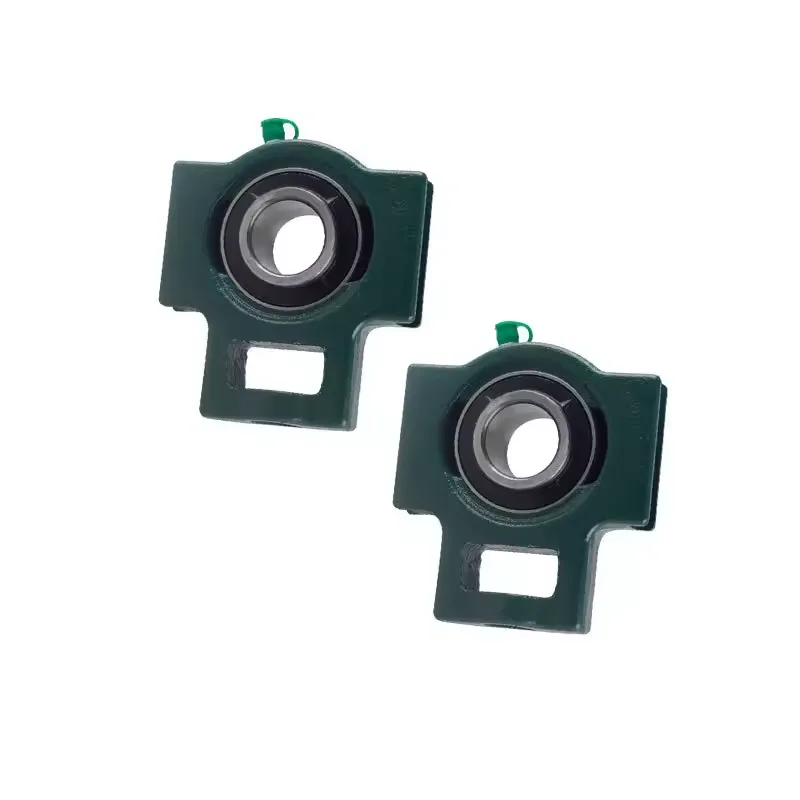Dec . 05, 2024 14:27 Back to list
Top Ceramic Bearings Manufacturers for Superior Performance and Durability in Industrial Applications
The Rise of Ceramic Bearings Manufacturers
In recent years, the demand for high-performance bearings has grown significantly across various industries, driving innovation and development in bearing technology. One of the most significant advancements has been the rise of ceramic bearings, which are increasingly becoming the go-to solution for applications requiring durability, low friction, and resistance to wear. These bearings, typically made from materials like silicon nitride or zirconium dioxide, are revolutionizing the manufacturing landscape, and the emergence of specialized ceramic bearings manufacturers is a testament to this trend.
What Are Ceramic Bearings?
Ceramic bearings are mechanical components that use ceramic materials for their rolling elements and, in some cases, the raceways. Unlike traditional steel bearings, ceramic bearings offer unique properties that make them superior in several applications. They exhibit lower density, high-temperature resilience, resistance to corrosion, and the ability to operate without lubrication in some cases. This combination of qualities allows them to perform well in extreme environments and prolong their operational life, ultimately leading to lower maintenance costs.
The Advantages of Ceramic Bearings
1. Low Friction Ceramic bearings typically have lower friction coefficients compared to their steel counterparts. This translates to increased efficiency and reduced energy consumption, making them an ideal choice for electric motors and other applications where performance is critical.
2. High Temperature and Wear Resistance Ceramic materials can withstand elevated temperatures without losing their structural integrity. This characteristic is particularly advantageous in industries such as aerospace, automotive, and manufacturing, where equipment is subjected to harsh conditions.
3. Corrosion Resistance Unlike steel bearings, ceramic bearings do not rust or corrode when exposed to moisture or harsh chemicals. This property makes them suitable for use in marine environments and in chemical processing applications.
4. Lightweight With a lower density than steel, ceramic bearings contribute to the overall weight reduction of machinery, enhancing performance in applications like bicycles, drones, and high-speed motors.
The Role of Ceramic Bearings Manufacturers
ceramic bearings manufacturer

As the advantages of ceramic bearings become more recognized, specialized manufacturers have emerged to meet growing demand. These manufacturers focus on producing high-quality ceramic bearings tailored to specific industries and applications.
1. Research and Development Leading ceramic bearings manufacturers invest heavily in research and development. This commitment allows them to innovate and improve their products constantly, developing bearings that can withstand even more severe conditions and offer enhanced performance.
2. Customization Different industries have unique requirements. Ceramic bearings manufacturers often provide customization options, allowing clients to request bearings with specific dimensions or tailored properties. This flexibility ensures that customers receive products that meet their exact needs.
3. Quality Assurance High-quality manufacturing processes are essential for ceramic bearings to perform reliably. Reputable manufacturers employ stringent quality control measures to ensure their products meet international standards, such as ISO certifications. This focus on quality not only enhances product performance but also builds trust with customers.
4. Global Reach With the globalization of supply chains, many ceramic bearings manufacturers have expanded their operations to serve international markets. This allows them to cater to a broader array of customers, from small businesses to large corporations in various sectors.
Challenges in the Ceramic Bearings Market
While the ceramic bearings market is thriving, it is not without its challenges. One major obstacle is the higher initial cost of ceramic bearings compared to traditional steel bearings. However, the long-term benefits often outweigh the initial investment, particularly when considering reduced maintenance and longer service life.
Additionally, the manufacturing process for ceramic bearings can be more complex and time-consuming. This complexity requires specialized expertise and equipment, which not all manufacturers may possess. As a result, there is a continuous need for skilled professionals in the field.
Conclusion
Ceramic bearings manufacturers are at the forefront of a significant shift in bearing technology. As industries increasingly recognize the benefits of using ceramic materials, the demand for these advanced components will continue to rise. With their unique properties and ability to enhance performance in various applications, ceramic bearings are poised to play a critical role in the future of mechanical engineering and manufacturing. As markets evolve and technology advances, the contribution of ceramic bearings manufacturers will be more vital than ever, leading to a new era of innovation in bearing applications.
Latest news
-
25MM 2 BOLT UCFLX05-14 Flange bearing unit( oval)
NewsMar.07,2025
-
4 bolt UCF 200 series Pillow block bearings
NewsMar.07,2025
-
25MM 2 BOLT UCFLX05-14 Flange bearing unit( oval)
NewsMar.07,2025
-
UCF216-50 4-Bolt Flange Housing Square Bearing
NewsMar.07,2025
-
25MM 2 BOLT UCFLX05-14 Flange bearing unit( oval)
NewsMar.07,2025
-
spherical roller bearing material exporter
NewsMar.07,2025





